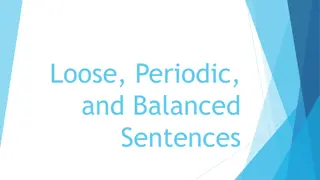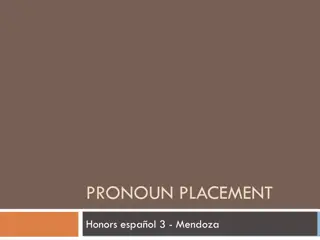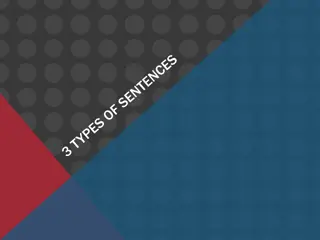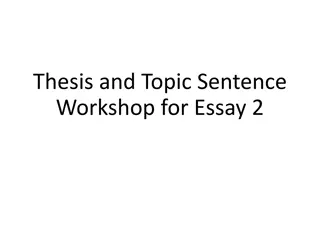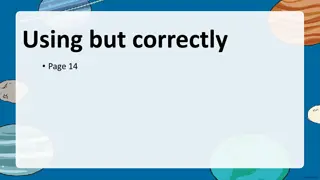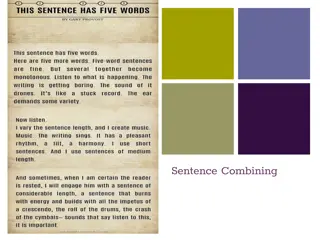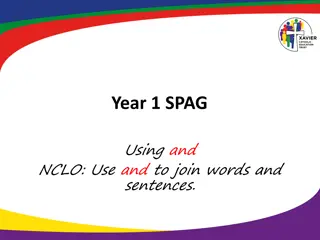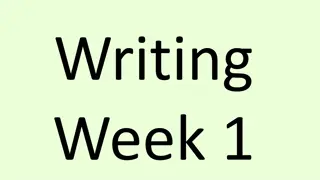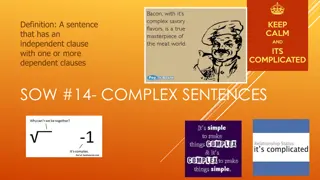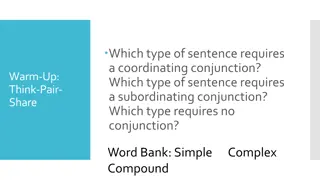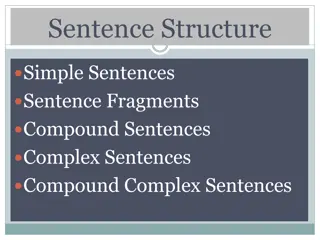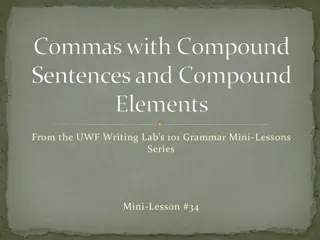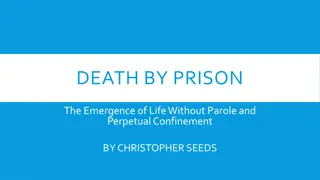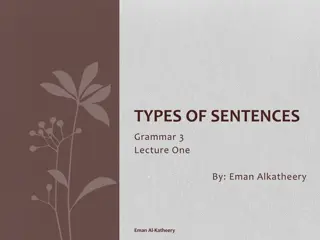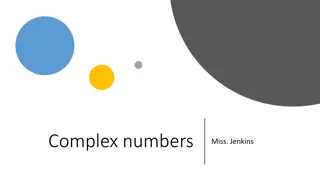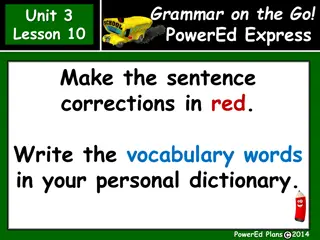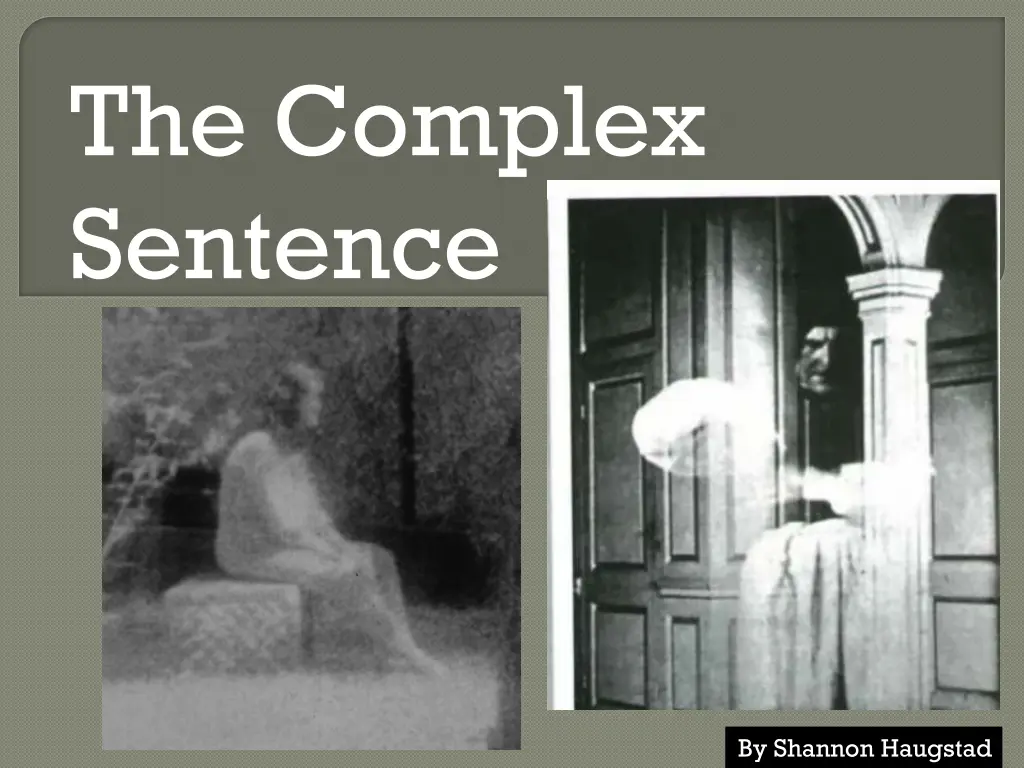
Understanding Complex Sentences: A Guide
Learn about complex sentences and how they are structured with examples of independent and dependent clauses. Discover how to differentiate between the two types of clauses and the rules for punctuation in complex sentences. Enhance your writing skills by mastering the art of creating complex sentences using dependent clauses.
Download Presentation

Please find below an Image/Link to download the presentation.
The content on the website is provided AS IS for your information and personal use only. It may not be sold, licensed, or shared on other websites without obtaining consent from the author. If you encounter any issues during the download, it is possible that the publisher has removed the file from their server.
You are allowed to download the files provided on this website for personal or commercial use, subject to the condition that they are used lawfully. All files are the property of their respective owners.
The content on the website is provided AS IS for your information and personal use only. It may not be sold, licensed, or shared on other websites without obtaining consent from the author.
E N D
Presentation Transcript
The Complex Sentence By Shannon Haugstad
A SENTENCE has a noun, a verb (also called the subject and predicate), and a complete thought. Example Sentence: I shall haunt you until your dying day. A sentence is also called an Independent clause. Sentence = Independent Clause Sentence = Independent Clause
A complex sentence is made of an independent clause and one or more dependent clauses. A dependent clause CANNOT stand alone A dependent clause CANNOT stand alone as a complete sentence. It HAS a subject as a complete sentence. It HAS a subject and verb, but DOES NOT complete the and verb, but DOES NOT complete the thought. thought. Examples: Examples: When the shadow appeared on the wall. . . If I see blood. . . Although I thought I would like to see a ghost. . .
A Dependent Clause frequently begins with a relative pronoun That . . .which. . . Who. . . That . . .which. . . Who. . . Whose. . . whom Whose. . . whom Examples: Examples: 1. The ghost, Whose image I see in this photo, haunted my house. 2. I really think that ghosts are real. 3. The old Hotel, which is reported to be haunted by the Blue Lady, is located in Skykomish, Washington
Other Dependent Clauses begin with Subordinating Conjunctions Here are a few: before, after, when, until, while, because, since, if, unless, provided that, although, though, even though, despite, in spite of
Add a Dependent Clause to a simple sentence and you have a COMPLEX sentence! Examples: 1. When the Zombie was about to strike, I lit him on fire. 2. Although I like movies about zombies, I don t think I would like to meet one in real life! 3. I carry garlic because I believe in Vampires.
Beware the Comma! Beware the Comma! DC,IC DC,IC ICDC ICDC I,DC,C I,DC,C *Do not use a comma if a sentence has the independent clause first. *If the sentence has the dependent clause first, Use a comma
Your Task Your Task: : Due Friday 10-7 1. Create Sentences using Vocabulary 3A. 2. Make each sentence complex (use a dependent clause) 3. Highlight the dependent clause 4. Circle the comma (if it is necessary) 5. Underline the Vocabulary word 6. Write your sentences about The Sniper, Holocaust background information, or Night.


